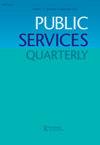大学图书馆里有“抄袭检测软件”的位置吗?
Q3 Social Sciences
引用次数: 0
摘要
许多高校使用Turnitin、SafeAssign等“抄袭检测”软件来检测和阻止学术不诚实。自2005年以来,内布拉斯加州大学林肯分校图书馆为学生提供了SafeAssign和Turnitin作为教学工具的直接访问权限,以帮助他们识别来源的不当引用。当类似的软件价格过高时,学生们很乐意免费使用这些产品。然而,Turnitin经常在学生论文中发现假阳性,学生可能会发现Turnitin的独创性报告难以理解。因此,目前还不清楚向学生提供这种图书馆服务,与专注于教授正确引用资料有多大帮助。本文章由计算机程序翻译,如有差异,请以英文原文为准。
Is there a place for “plagiarism detection software” in an academic library?
Abstract Many colleges and universities use Turnitin, SafeAssign, and other “plagiarism detection” software to detect, and deter, academic dishonesty. Since 2005, the University of Nebraska-Lincoln Libraries have provided students direct access to SafeAssign and Turnitin as teaching tools to help them identify improper citation of sources. Students appreciate having free access to these products when similar software can be cost-prohibitive. However, Turnitin commonly finds false positives in student papers, and students may find Turnitin’s originality reports difficult to understand. Therefore, it is unclear how helpful it is to offer this library service to students, versus focusing on teaching proper citation of sources.
求助全文
通过发布文献求助,成功后即可免费获取论文全文。
去求助
来源期刊

Public Services Quarterly
Social Sciences-Library and Information Sciences
CiteScore
0.90
自引率
0.00%
发文量
38
期刊介绍:
Public Services Quarterly covers a broad spectrum of public service issues in academic libraries, presenting practical strategies for implementing new initiatives and research-based insights into effective practices. The journal publishes research-based and theoretical articles as well as case studies that advance the understanding of public services, including reference and research assistance, information literacy instruction, access and delivery services, and other services to patrons. Articles may examine creative ways to use technology to assist students and faculty. Practice-based articles should be thoroughly grounded in the literature and should situate the work done in one library into the larger context of the situation.
 求助内容:
求助内容: 应助结果提醒方式:
应助结果提醒方式:


